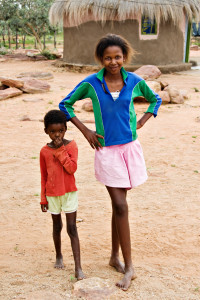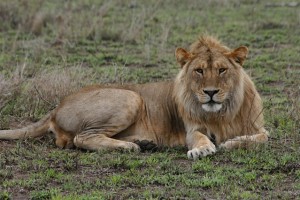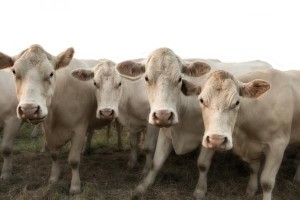Worldlog Tjedan 38 – 2015
Sve veća izbjeglička kriza prošlog tjedna je dominirala rasprave u saboru. Baš kada se tiče rješavanju pitanja izbjeglica, suosjećanje i održivost su usko povezani. Uzrok sukoba u zemljama podrijetla izbjeglica sve više je nestašica hrane, uzrokovana klimatskim promjenama i problemima sa vodom. NATO predviđa ” vodene ratove”.
Istraživači sa Sveučilišta Columbia, Sirijski građanski rat nazvali su “klimatski rat”. Ljudi u potrazi za srećom nisu ti ljudi koji napuštavaju svoje domove, ljudi u potrazi za srećom su ljudi koji daleko od kuće traže naftu, mahune unose iz siromašnih zemalja gdje su velike suše i ljudi koji sječu prašume da bi pravili stočnu hranu.
Ljudi koji omogućavaju konzumiranje kao da na raspolaganju imamo četiri zemaljske kugle, to su tek ljudi u potrazi za srećom. Da bi došli do rješenja, izuzetno je važno da se što više ljudi usudi suočiti sa temeljnim uzrocima problema izbjeglica. Predsjednik Europske komisije, Jean-Claude Juncker i američki državni tajnik John Kerry, na svu sreću sada podupiru ovo stajalište. U ovom stripu problem je kratko i jasno ilustriran.
Jedva je prošlo dva mjeseca otkako je američki zubar Walter Palmer tijekom lova u Zimbabveu ubijo voljenog lava Cecila. Incident je (s pravom!) uzrokovao brojne žestoke kritike. Nažalost, ove vrste putovanja za lov u inozemstvu nisu iznimke. Ovaj tjedan vijesti su javile da je dvadesetak Nizozemaca i Belgijanaca otišlo na ‘ jedinstveno lovačko putovanje” u Južnoj Africi, da bi tamo, među ostalim, ubijali antilope, bradavičaste svinje, pavijane i druge divlje životinje. Tijekom ovakih potraga, životinje se progone u smjeru lovaca, tako da ih lovci lakšse mogu upucati. Ova vrsta pogonskog lova je nažalost legalna u Južnoj Africi. Lovci se često brane spominjanjem društvenih ciljeva kao razlog za lov. Gore spomenuti način lova međutim pokazuje to što je lovcima stvarno bitno. Njihova strast je ubijanje divljih životinja. Bilo u Nizozemskoj ili u Južnoj Africi.
Ja se u saboru već dugo borim protiv ovih takozvanih lovačkih trofejskih putovanja, pri kojima Nizozemci u inozemstvu često nesmetano mogu loviti na ugrožene vrste životinja. Nedavno je usvojen moj prijedlog za zabranu lovačkih trofeja. To je korak u pravom smjeru, jer lovački trofeji će u svakom slučaju u Nizozemskoj biti zabranjeni!
Dobre vijesti! Velika većina Europskog parlamenta podržava poziv naše europske grupe za zabranu kloniranog mesa. Velika većina kloniranih životinja se rodi mrtva, a samo vrlo mali postotak doživi prvu godinu života, i to često s bolestima i poremećajima. Kloniranje – što se često događa u SAD-u – izaziva mnogo patnje. Povrh toga ispada da je 77 posto europskih građana protiv kloniranog mesa. Ljudi ga ne žele, poljoprivrednicima ne treba, i životinje plaćaju cijenu. Idemo naprijed za ukupnu zabranu proizvoda od kloniranih životinja!
Do sljedećeg tjedna!
Marianne
The growing refugee problems dominated the discussion in the Lower House last week. Compassion and sustainability cannot be more closely related than in the solution to the refugee problem. Conflicts in the refugees’ countries of origin are increasingly caused by food shortages resulting from climate and water issues. NATO anticipates “water wars”.
Researchers of Columbia University have called the Syrian civil war a “climate war”. Not the people fleeing from their homes are fortune-seekers, but the people drilling for oil far from home, getting green beans from poor countries that suffer from droughts, and felling rainforests to grow animal feed.
The people ensuring we consume as if we have four earths at our disposal, those are the fortune-seekers. To arrive at a solution, it is incredibly important for more people to dare face the underlying causes of the refugee problem. Fortunately, Jean-Claude Juncker, the President of the European Commission, and John Kerry, the American Minister of Foreign Affairs, now subscribe to this understanding. This comic illustrates the problems short and clear.
It is barely two months ago that American dentist Walter Palmer shot the beloved lion Cecil during a hunting trip in Zimbabwe. The incident caused a lot of uproar (and rightly so!). This type of hunting trip abroad is no exception, unfortunately. News emerged this week that around twenty Dutch and Belgians have gone on a “unique hunting trip” in South Africa to shoot antelopes, warthogs, baboons and other wildlife. During this battue, the animals are driven towards the hunters for easy hits. Unfortunately, this type of battue is legal in South Africa. Hunters often defend themselves with social objectives as a legitimisation of hunting. However, this shooting represents what hunters are essentially after. Their passion is to obtain and kill animals. Whether it be in the Netherlands or in South Africa.
In the Lower House, I have fought for some time against these so-called trophy tours, enabling Dutch hunters to hunt undisturbed for often endangered species abroad. My motion for an import ban on hunting trophies was adopted recently. A step in the right direction, because hunting trophies will no longer be allowed to enter the Netherlands!
Good news! A large majority of the European Parliament supports the call of our European group to ban cloned meat. The vast majority of cloned animals are stillborn and only a very small percentage lives to be one year old, often suffering from many diseases and abnormalities. Cloning – something that happens frequently in the US – causes a lot of animal suffering. Besides, it turns out that 77% of European citizens are not in favour of cloned meat. Citizens do not want it, farmers do not need it and animals are paying the price. Let’s go for a total ban on products from cloned animals!
See you all next week!
Marianne


